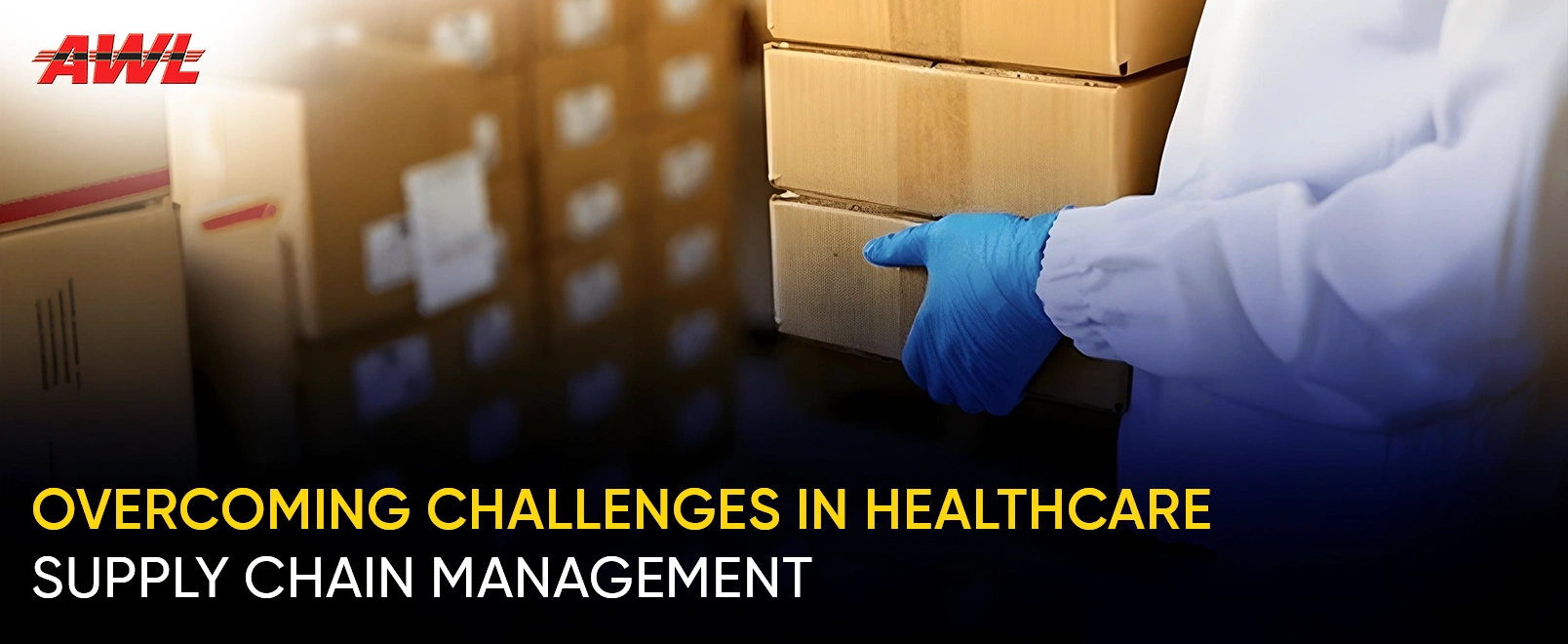

Over the past few years, the healthcare industry has seen an enormous change. Innovation is quickening its pace, from elaborate telemedicine to AI diagnostics. However, despite this advancement, there is one key dimension that tends to get strained most of the time, the healthcare supply chain. The task of making sure that the right medical products, pharmaceuticals, and equipment arrive in the hospitals, clinics, and to the patients, on time, is a complex one. This has been further complicated by global disruptions, regulatory changes, and an increase in healthcare service demands.
Mitigating these issues is the primary component to the enhancement of public health outcomes, cost reduction, and patient satisfaction. This blog discusses various challenges that characterize the healthcare supply chains and how the providers are overcoming these challenges using innovative solutions.
1. Complexity and Fragmentation of the Healthcare Ecosystem
The healthcare industry handles a variety of products, unlike other industries: there are temperature-sensitive vaccines, life-saving equipment, and surgical tools. All of these categories differ in the way they are handled and stored, and what they are compliant with. Moreover, there are several stakeholders involved in the process, including the suppliers, manufacturers, distributors, hospitals, pharmacies, and regulatory bodies, which form a complex dependency network.
This fragmentation often leads to communication breakdowns, delays, and inefficiencies. Many organizations have turned to digitized platforms and real-time tracking systems to centralize information and streamline coordination. By creating integrated logistics networks, healthcare providers can respond faster and reduce operational bottlenecks.
2. Lack of Real-Time Visibility
One of the most persistent issues in supply chain management in healthcare is limited visibility. Without end-to-end tracking, it becomes difficult to monitor product movement, manage inventory levels, or anticipate stock-outs. This can lead to both overstocking (which raises storage costs) and understocking (which can be life-threatening).
To address this, healthcare providers are adopting Internet of Things (IoT) solutions, RFID tagging, and GPS tracking to gain real-time insights. These technologies ensure that decision-makers can track shipments, receive alerts about delays, and proactively mitigate risks. With transparency in place, organizations can optimize their supply chain workflows and make data-backed procurement decisions.
3. Regulatory and Compliance Hurdles
Every stage of the healthcare supply chain is governed by stringent rules, whether it’s about drug safety, equipment sterilization, or import/export documentation. Regulatory standards vary across regions, making compliance a constant challenge for multinational healthcare organizations.
Non-compliance can lead to hefty fines, recalls, and reputational damage. To overcome this, companies are turning to automated compliance systems that continuously monitor and document the flow of goods. These solutions ensure adherence to standards while reducing the administrative burden on internal teams. Partnering with a reliable supply chain management company that specializes in healthcare logistics can also be a game-changer, ensuring proper certification, safe transportation, and accurate documentation.
4. Demand Uncertainty and Forecasting Issues
The COVID-19 pandemic highlighted the fragility of healthcare supply chains. Unexpected surges in demand for PPE, oxygen, and critical care drugs caught many systems off guard. Even today, fluctuating patient volumes and unpredictable outbreaks make it difficult to forecast demand accurately.
Advanced analytics and machine learning models are helping bridge this gap. By analyzing historical usage, seasonality, and real-time data, these tools can predict demand spikes and recommend optimal inventory levels. This enables organizations to avoid waste and stay prepared for emergencies.
5. Temperature and Time Sensitivity
Many healthcare products — such as blood plasma, insulin, and vaccines — require strict temperature controls. A deviation of even a few degrees during transit can render a shipment useless. Similarly, many products have short shelf lives, demanding rapid delivery from production to the patient.
Ensuring cold chain integrity and timely distribution is non-negotiable. This is where specialized logistics providers offering supply chain management services step in. With temperature-controlled vehicles, validated packaging systems, and contingency protocols, they safeguard product integrity throughout the journey. Integrating digital temperature logs and automated alerts further reduces the risk of spoilage or contamination.
6. Cybersecurity and Data Protection
As supply chains become increasingly digitized, they also become more vulnerable to cyber threats. From patient data to supplier information, healthcare systems handle vast volumes of sensitive information that must be protected.
Cybersecurity is no longer just an IT concern; it’s a supply chain concern. Organizations must invest in encrypted platforms, regular audits, and employee training to prevent breaches. Partnering with experienced logistics firms that prioritize data security is crucial in today’s connected world.
7. Skilled Workforce and Training Gaps
Managing supply chain operations in healthcare isn’t just about technology — it’s also about people. Many healthcare organizations struggle to find trained supply chain professionals who understand the nuances of healthcare logistics.
To counter this, companies are investing in employee upskilling, certification programs, and cross-functional training. Collaborations between supply chain experts and healthcare professionals are also helping bridge the knowledge gap. A capable, well-informed workforce can make informed decisions, resolve disruptions faster, and enhance overall efficiency.
The Way Forward: Strategic Partnerships and Technology
Overcoming the challenges of supply chain management in healthcare is not a one-size-fits-all endeavor. It requires a strategic approach that blends technology, collaboration, and continuous improvement.
One of the most effective strategies is partnering with a trusted supply chain management company that has proven expertise in the healthcare domain. These partners bring in the right infrastructure, compliance knowledge, and technological tools to handle complexities at scale.
Additionally, integrating AI, blockchain, and predictive analytics into the supply chain can further enhance accuracy, security, and agility. For instance, blockchain can ensure tamper-proof tracking of pharmaceutical shipments, while AI can optimize route planning and reduce delivery times.
Why Choose AWL India?
As one of India’s leading logistics and supply chain partners, AWL India offers tailored solutions for the healthcare sector. With robust infrastructure, tech-driven platforms, and a deep understanding of industry regulations, AWL India ensures safe, efficient, and compliant delivery of critical healthcare supplies.
From cold chain logistics to emergency response systems, AWL India is committed to building resilient healthcare supply chains that save lives. Whether you're a hospital, pharmaceutical company, or government body, AWL India supply chain management services are designed to elevate operational performance and reduce costs without compromising patient care.
Conclusion
The future of healthcare depends on resilient, transparent, and agile supply chains. By addressing current challenges head-on from visibility and compliance to demand forecasting and cold chain logistics the industry can transform the way essential products reach those in need.
With the right partners, technologies, and strategies, organizations can redefine supply chain management in healthcare as a pillar of excellence rather than a point of vulnerability. In a world where every second counts, strengthening healthcare supply chains is not just a necessity it’s a responsibility.

John Smith
Digital Tech Head